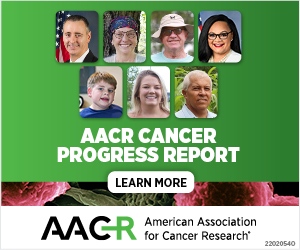Cancer Research
Saves Lives.
June is National Cancer Survivor Month.
#CelebrateSurvivorship #NationalCancerSurvivorMonth #CancerResearchSavesLives
Thank you for your submission.
During National Cancer Survivor Month, we celebrate the millions of people and families in the United States and worldwide who are living with, through, and beyond a cancer diagnosis. Learn more about the spectacular progress driven by cancer research and test your knowledge with our Cancer Survivors quiz.
-
Cancer research is the foundation of progress against the collection of devastating diseases we call cancer. It is the driving force behind every advance across the clinical cancer care continuum and every legislative action designed to improve public health.
In the mid-1970s, the five-year relative survival rate for all cancers combined was 49 percent. What was that rate 2013 – 2019?- 52 percent
- 58 percent
- 63 percent
- 69 percent
- 91 percent
-
Research-driven progress in cancer detection, diagnosis, and treatment is helping more and more people to survive longer and lead fuller lives after a cancer diagnosis. When the National Cancer Act of 1971 was signed into law in the United States, there were 3 million cancer survivors living in this country.
How many cancer survivors are living in the United States as of 2022? More than:- 8 million
- 11 million
- 13 million
- 16 million
- 18 million
-
Progress in cancer research and care has eliminated disparities in cancer survivorship.
- True
- False
Question 1 of 3
Answer: 69 percent
Advances propelled by research are helping drive down U.S. cancer death rates. The age-adjusted U.S. cancer death rate declined by 32 percent from 1991 to 2019, a reduction that translates into 3.5 million lives saved. In addition, the U.S. five-year relative survival rate for all cancers combined rose from 49 percent in the mid-1970s to 68.7 percent in 2019, according to data from the federal government. Learn more here.
Question 2 of 3
Answer: 18 million
As of 2022 there are more than 18 million people in the United States living with, through, and beyond a cancer diagnosis. Each of these individuals has a unique experience and outlook, which can range from successful treatment and living cancer-free for the remainder of his or her life to living continuously with cancer. Cancer survivorship encompasses three distinct phases: the time from diagnosis to the end of initial treatment, the transition from treatment to extended survival, and long-term survival. Learn more about cancer survivorship.
Question 3 of 3
Answer: False
Advances against cancer have not benefited everyone equally and certain segments of the population shoulder a disproportionate burden of the disease.
Examples of U.S. cancer health disparities in survivorship and treatment include:
Examples of U.S. cancer health disparities in survivorship and treatment include:
- Non-Hispanic Blacks have more than twice the incidence and death rates for multiple myeloma.
- Hispanic adults have a stomach cancer death rate that is almost double that for non-Hispanic white adults.
- American Indian/Alaska Native adults are twice as likely to develop liver and intrahepatic bile duct cancer as non-Hispanic white adults.
- Two-thirds of rural cancer survivors from the Appalachian region report financial distress.
- Liver cancer patients living in rural communities at the time of diagnosis have nearly 10 percent higher mortality compared to patients living in urban communities.
- Individuals transitioning from female to male are 58 percent less likely to adhere to cervical cancer screening than cisgender individuals.
You answered out of 3 correctly!
Thank you for participating in our National Cancer Survivor Month quiz highlighting just some of the advances in cancer research that are benefiting patients today.
Cancer Research Saves Lives!
Throughout June, we encourage you to share your experiences with cancer and cancer research on social media using the hashtag #CancerResearchSavesLives. Learn more about the American Association for Cancer Research (AACR) — the first and largest cancer research organization in the world — and how you support research-driven progress against cancer: AACR.org.
Share your name and email with us below to get access to the digital version of Leading Discoveries, an AACR publication covering advances against cancer, and to keep up on information from the AACR and our more than 54,000 members worldwide.
Tweet your score to help spread awareness here:
Tweet Your Score
Get Updates
*By clicking submit you agree to our terms and read our privacy policy.




